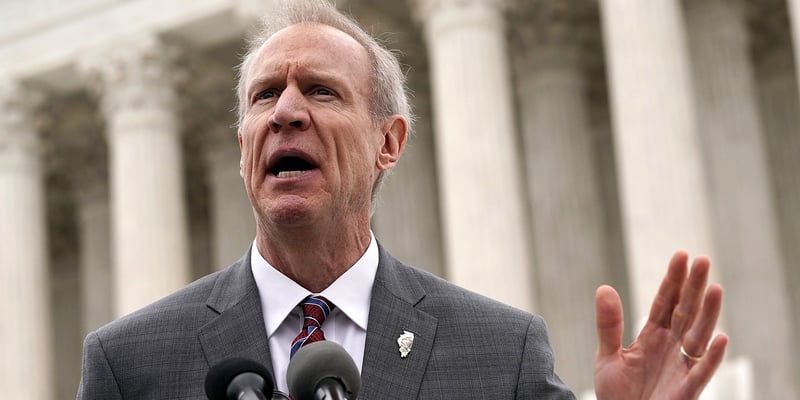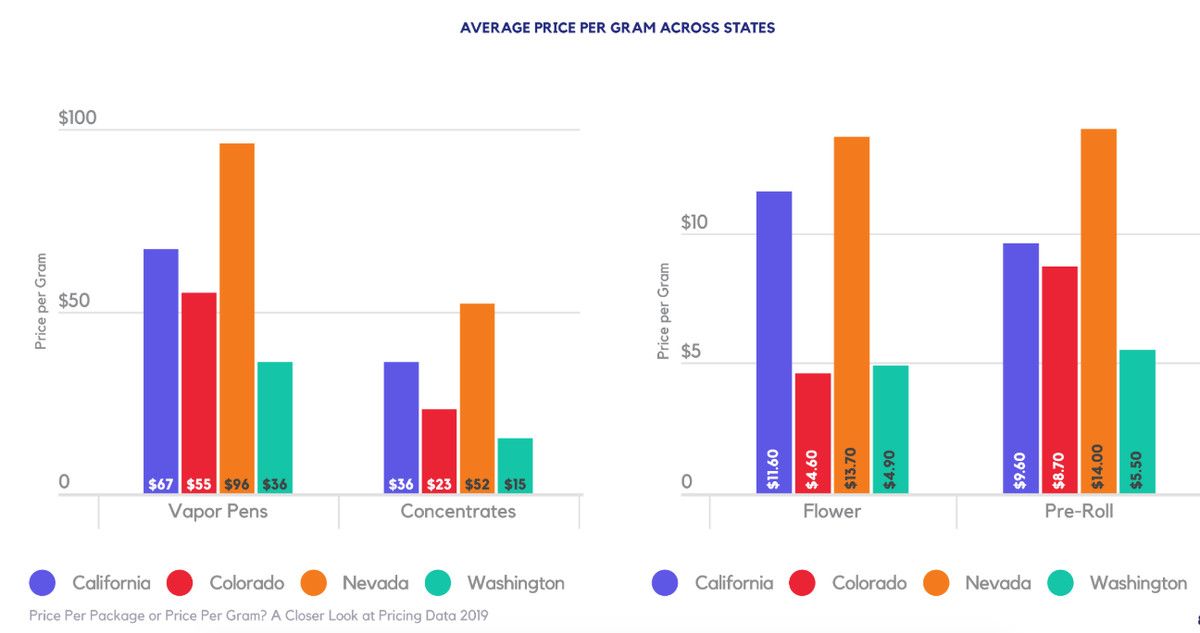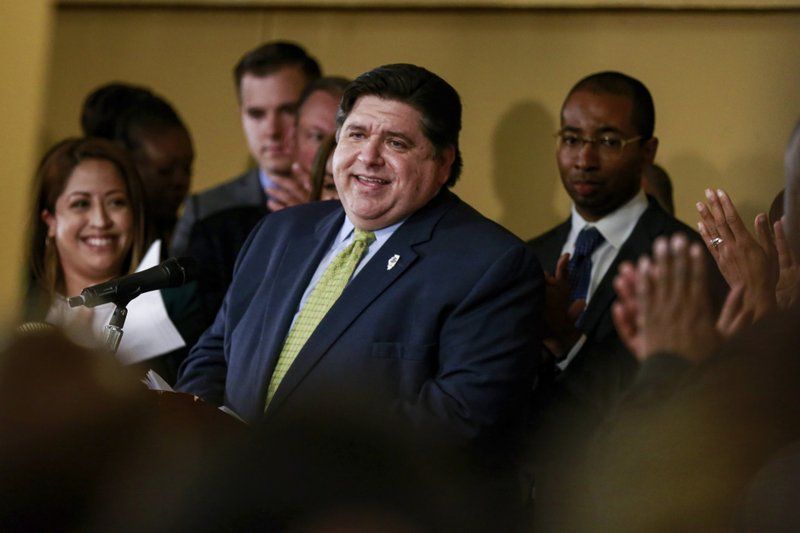Baron23
Well-Known Member
"State Representative Anthony DeLuca, a Democrat from Chicago Heights, took out a frying pan and an egg during his designated speaking time. As he cracked the egg and flopped it into the pan, he gave the traditional sentiments. "I want to leave an image for you," he said, as he held an egg in the air. "You see this? This is your brain. There it is folks. This is your brain on drugs."
And this guy actually gets paid for this asinine and juvenile baloney? Really?
Marijuana legalization approaches final hurdle in Springfield
Since the state Senate voted to approve the bill last night, the more than 600-page measure faces one more big step in the last days of Gov. Pritzker's first legislative session.
Illinois has one more big step on its long journey toward legalizing marijuana use.
After a last round of tinkering, the wide-ranging law passed the Senate last night. The bill moves to the House, where it could be heard today.
“Illinois is poised to become the first state in the nation that put equity and criminal justice reform at the heart of its approach to legalizing cannabis, and I’m grateful that the Senate has taken this important step with a bipartisan vote," said Gov. J.B. Pritzker, who campaigned as a supporter of legalizing recreational marijuana use. "I encourage the House to take decisive action to make Illinois a national leader in equity and criminal justice reform.”
After a 38-17 vote in the Senate, Rep. Kelly Cassidy, one of the bills authors, said she feels good about its prospects.
The 610-page bill tackles a number of thorny issues, including provisions to expunge past arrests and convictions, and ways to help impoverished and minority communities recover from some of the effects of the war on drugs and get a shot at profiting from the legal marijuana business.
“We know prohibition is not working. We want social justice, safety for our kids and the state to realize additional revenue,” Sen. Heather Steans, another co-author of the legislation, said during a committee hearing before the full Senate voted on the bill.
Legalizing marijuana use is expected to create an industry with $1 billion to $2 billion in annual sales. The state ultimately expects up to $500 million a year in tax revenue from recreational marijuana sales, according to estimates.
The bill, which had languished for weeks, was called for a vote in the Senate only after sponsors made changes that opponents had sought. It limited a home-grow provision, which had been opposed by law enforcement, to medical use. Lawmakers added language to address concerns around how police will ultimately deal with cannabis in enforcing DUI laws.
There also were changes to procedures around expungement of criminal records for minor marijuana possession, a key provision among Democratic lawmakers but one that drew opposition from law enforcement. The governor would issue pardons for most offenses, but state’s attorneys would be able to challenge expungement in some cases.
Perhaps the most important change involved businesses, allowing them to maintain workplace policies that prohibit drug use, which was cited by Sen. Jason Barickman, R-Bloomington, in deciding to drop his opposition and vote for the law. He also said legalization would increase personal freedom.
“Six months ago, we were very opposed," Todd Maisch, CEO of the Illinois Chamber of Commerce, said during the committee hearing in the Senate yesterday. "Our board, after a lot of deliberation, we aren’t excited, but we're not opposed. We believe—with the exception of one concern over random drug testing, which will get worked out . . . these are the strongest workplace protections in the nation."
Illinois is attempting to become the first state of nearly a dozen that have authorized recreational marijuana to set up the framework for legalization by legislation, rather than having bureaucrats create the rules after voters approve a referendum. It's hard to pull off. Legislative efforts in New York and New Jersey have sputtered.
Illinois lawmaker uses egg and frying pan to demonstrate his feelings on recreational marijuana
SPRINGFIELD, Illinois -- As lawmakers in Illinois discussed a bill pushing to legalize recreational marijuana, one representative offered a classic visual to show what he thought about the bill.
State Representative Anthony DeLuca, a Democrat from Chicago Heights, took out a frying pan and an egg during his designated speaking time. As he cracked the egg and flopped it into the pan, he gave the traditional sentiments.
"I want to leave an image for you," he said, as he held an egg in the air. "You see this? This is your brain. There it is folks. This is your brain on drugs."
His demonstration was met with some laughter and applause, but the remarks that followed were the opposite.
Representative Bob Morgan, a Democrat from Deerfield called the demonstration "nonsense" and said it was a waste of eggs "that should have been used to make a souffle or something instead of making a ridiculous point that was outdated for 30 years."
He went on to ask the bill's lead sponsor, Representative Kelly Cassidy, a Democrat from Chicago, to talk about public education.
Cassidy said their goal from the beginning was to reduce youth access.
"Teens and young adults are capable of making good decisions when provided with good information," she said. "The idea that we expect our kids to ace the AP bio exam but think that putting an egg in a frying pan is going too tel them what it means to take a substance into their body is ludicrous."
She said they had created a Public Health Advisory Task Force and said they had been and would continue to monitor studies from other states who have taken on legal marijuana.
Lawmakers may take a vote on Friday, May 31, which is the last day of the spring legislative session. If the bill is passed, Illinois would be the 11th state in the union to legalize recreational marijuana. The drug would be available to adults 21 and older; adults would be allowed to possess up to one ounce of marijuana at a time.





